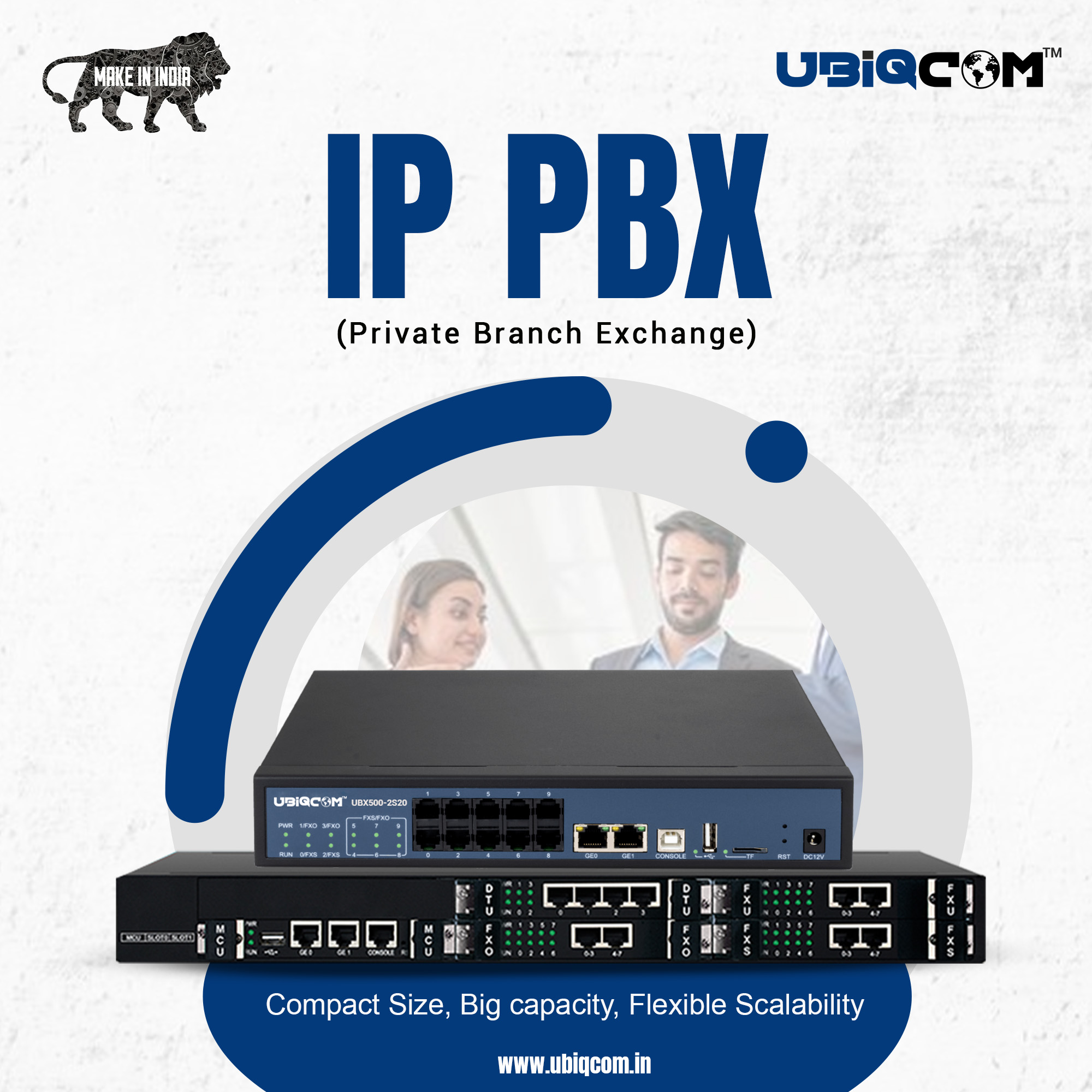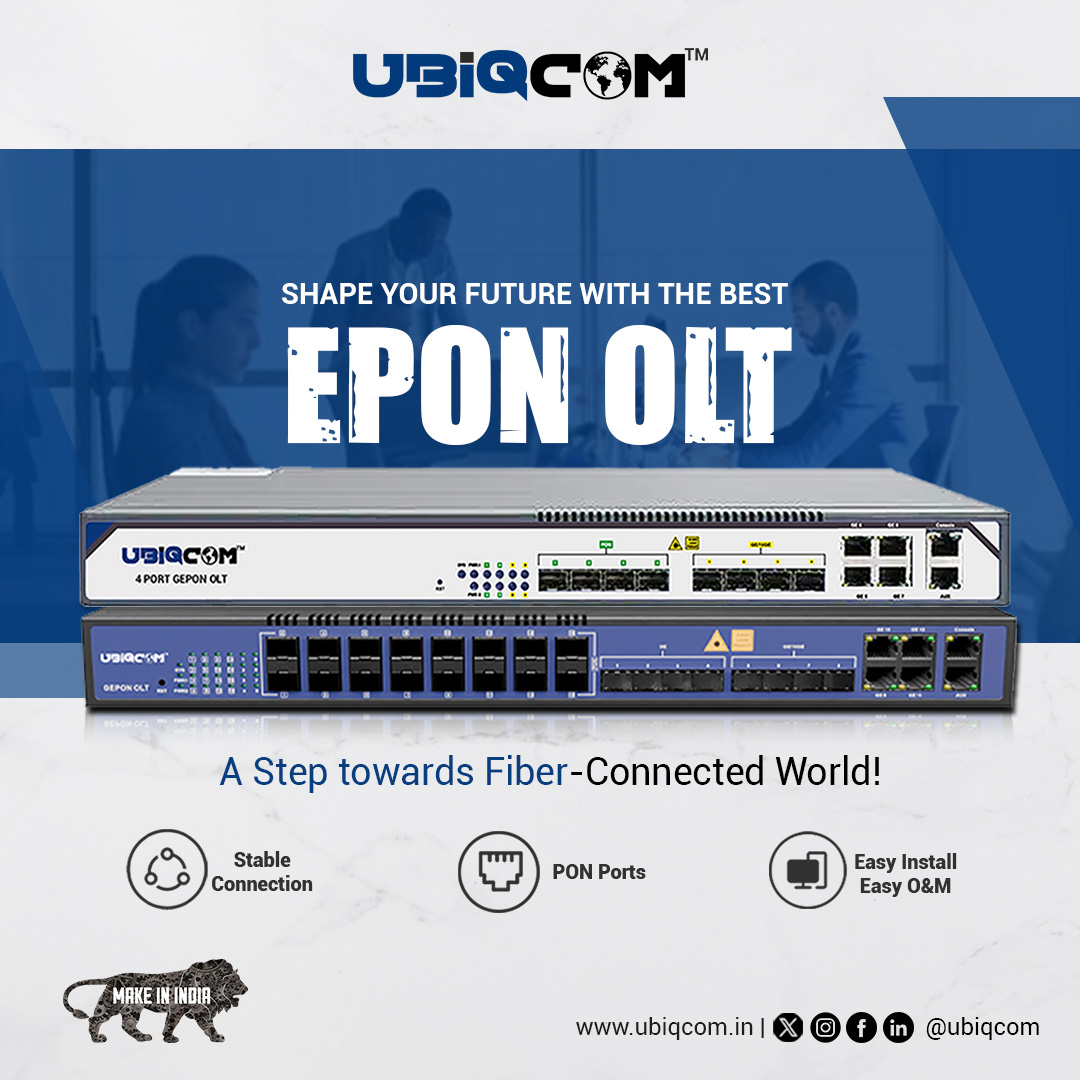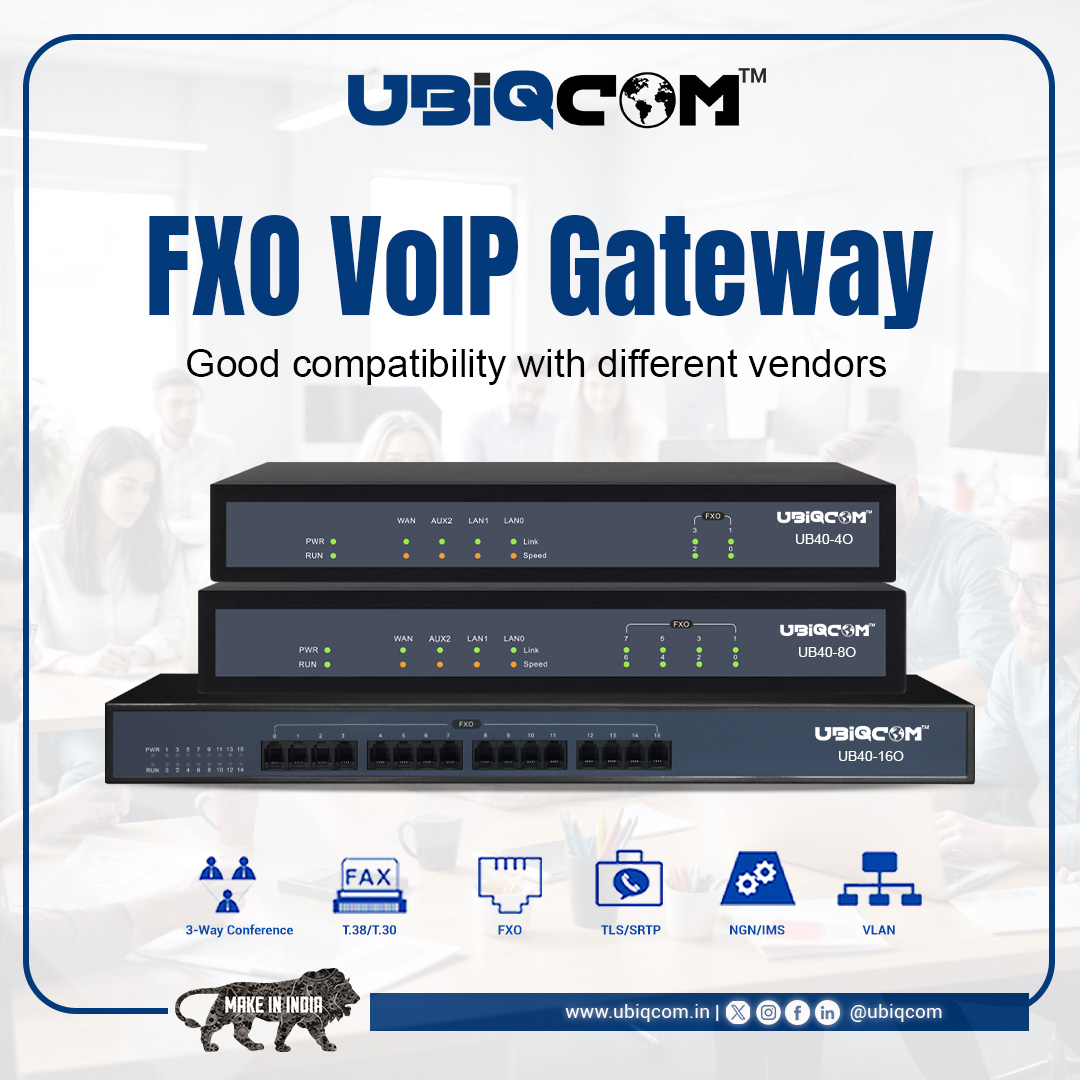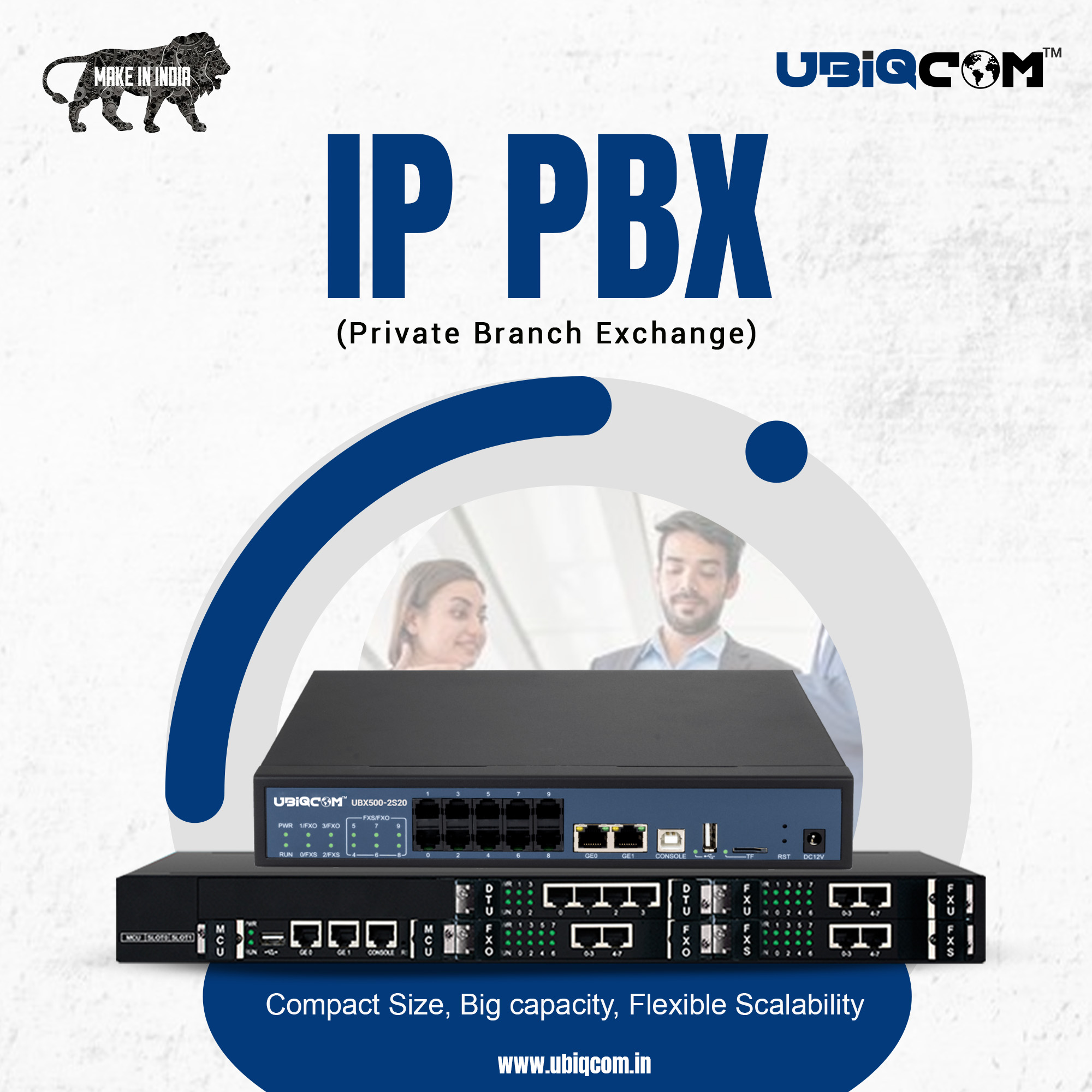What is an IP PBX? A Complete Guide for Modern Businesses

Strong 8k brings an ultra-HD IPTV experience to your living room and your pocket.
In today’s digital age, efficient and cost-effective communication is essential for any business. Whether you're a startup or a large enterprise, the way you manage internal and external calls can significantly impact productivity and customer satisfaction. That’s where IP PBX (Internet Protocol Private Branch Exchange) systems come into play.
An IP PBX is a modern communication solution that uses internet protocol to manage voice calls, video, conferencing, and more. It replaces the traditional telephone switching system with an internet-based network, offering advanced features at a fraction of the cost.
In this blog, we’ll explore what IP PBX is, how it works, its features, and why it’s an ideal choice for businesses of all sizes.
What is an IP PBX?
IP PBX (Internet Protocol Private Branch Exchange) is a telephone switching system that manages voice calls within an organization and connects them to the public switched telephone network (PSTN) or VoIP services. Unlike traditional PBX systems, which use analog lines, IP PBX uses the internet to transmit voice data.
Essentially, an IP PBX allows a business to make and receive phone calls over the internet, control call routing, and offer advanced functionalities like voicemail, call forwarding, auto-attendant, and more—all from a single unified platform.
How Does an IP PBX Work?
An IP PBX system typically includes the following components:
SIP Trunks or VoIP Lines: These are the virtual phone lines that replace traditional analog lines.
IP Phones or Softphones: Devices used to make and receive calls.
PBX Server: This is the core system that manages call routing, user extensions, features, and configuration.
When someone makes a call from an IP phone, the call is converted into digital packets and transmitted over a local area network (LAN) or internet. The PBX server processes the request, routes the call, and connects it to the desired recipient, either inside the organization or externally.
Key Features of IP PBX
An IP PBX system is much more than just a call router. It includes a variety of features that enhance communication and streamline operations:
1. Auto Attendant
An automated menu system that guides callers to the right department or extension without human intervention.
2. Call Forwarding
Redirect incoming calls to another number, mobile device, or voicemail during out-of-office hours or when busy.
3. Voicemail to Email
Receive voicemail recordings directly in your email inbox, making it easier to respond on the go.
4. Call Recording
Record incoming and outgoing calls for training, compliance, or quality assurance.
5. Conferencing
Conduct voice and video conferencing with multiple participants without needing third-party tools.
6. Remote Extension
Work from anywhere with remote extensions that allow employees to connect to the office phone system from home or while traveling.
7. CRM Integration
Connect your IP PBX system with customer relationship management tools for better call tracking and service.
Benefits of Using IP PBX
Switching to an IP PBX system offers several compelling benefits for modern businesses:
1. Cost Savings
IP PBX eliminates the need for separate phone lines and reduces the cost of long-distance and international calls. Using VoIP also means lower call rates compared to traditional phone services.
2. Scalability
As your business grows, you can easily add new users, extensions, or features without overhauling the system. This makes IP PBX ideal for startups and expanding enterprises.
3. Flexibility
IP PBX systems work with both IP phones and mobile devices. Employees can take their business line with them anywhere, ensuring seamless communication.
4. Centralized Management
Manage the entire communication network from a single web-based dashboard. Add or remove users, change configurations, or view analytics with just a few clicks.
5. Advanced Features
Enjoy enterprise-level features like call analytics, video calling, IVR, multi-level auto-attendant, and more—typically at no extra cost.
6. Integration Capabilities
IP PBX integrates well with other business tools such as CRMs, helpdesk software, and email systems, allowing unified communication across platforms.
On-Premise vs. Cloud IP PBX: Which is Right for You?
When choosing an IP PBX system, businesses have two main options:
1. On-Premise IP PBX
Installed and managed on-site, this setup gives full control over the system and hardware. It is ideal for businesses with dedicated IT teams and specific compliance needs.
2. Cloud-Based IP PBX
Hosted in the cloud by a service provider, this solution reduces hardware costs and maintenance responsibilities. It is perfect for businesses seeking flexibility, mobility, and lower upfront investment.
Both options offer the same core functionalities. The decision ultimately depends on your budget, control requirements, and internal resources.
Industries Using IP PBX
IP PBX systems are versatile and widely used across multiple sectors, including:
- IT & Software Companies – For remote collaboration and client communication.
- Call Centers – For handling high call volumes with smart routing and reporting.
- Educational Institutions – For internal and parent-staff communication.
- Healthcare Providers – For patient inquiries, appointment reminders, and staff coordination.
- Hospitality Industry – For front-desk and guest service communication.
Choosing the Right IP PBX System
When selecting an IP PBX system, consider the following:
- Number of users/extensions needed
- Cloud vs on-premise preference
- Integration with existing tools
- Customer support and training
- Security and compliance features
- Budget and long-term cost of ownership
Working with a reliable provider is crucial to ensure smooth installation, maintenance, and scaling.
Final Thoughts
IP PBX is no longer just an upgrade—it's a necessity for businesses that want to stay connected, agile, and cost-efficient. By leveraging internet-based calling, advanced features, and easy scalability, IP PBX systems empower businesses to enhance communication, streamline operations, and boost productivity.
Whether you're managing a small team or running a large organization, transitioning to IP PBX can significantly improve your communication infrastructure—making your business ready for the digital future.
Note: IndiBlogHub features both user-submitted and editorial content. We do not verify third-party contributions. Read our Disclaimer and Privacy Policyfor details.







